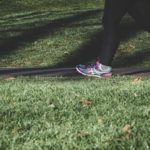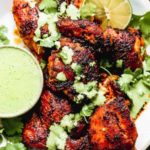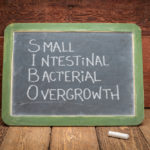People tend to be an aggressive, bloodthirsty species. We’re multivorous creatures who, throughout history, relied upon devouring organs and meat from animals we slaughtered (using their skins for clothing or foot covering) along with roots, berries and nuts collected as sources for sustenance; not to mention roots gathered along our travels for root crops etc. However, violence was unleashed both against nonhuman species but on ourselves too as individuals vied for control of resources such as land ownership or food resources and all manner of means available like burning dismemberment or even crucifixion when trying to kill each other off.
Do you get the impression that, although society has made great efforts to limit such impulses through sanctioned systems, human wellbeing and behavior have worsened over the last several years? Evidence points towards increased violence toward each other along with evidence for rising unhappiness among individuals as well as diminishing psychological health – these trends appear to have grown worse recently.
Suicide rates have seen an unprecedented surge since 2005, even before COVID-19 made its appearance; attempts for suicide increased 35% from 2005-2015 according to Bureau of Justice Statistics reports; domestic violence also spiked substantially (42% between 2016-2018). These stats come just prior to COVID-19 becoming pandemic.
Suicidal ideation has increased consistently since 2011 whilst costs associated with substance abuse (opioids, methamphetamine and cocaine amongst others) will also escalate over the same timeframe.
U.S. Preventive Suppliers job force guidelines suggest screening children 8 years of age or older for anxiety screening as part of its effort to address increasing levels of worry even prior to COVID-19 pandemic.
Absolutely, the pandemic exacerbated all these phenomena; yet these trends had already begun prior to isolation, disruption and financial struggles of its outbreak. What accounts for such widespread deterioration in psychological well-being? No doubt there are numerous contributing factors, with widening financial disparities, rising tech taking away human interaction as key examples – and many other – being amongst them.
However, might disruption of the gastrointestinal (GI) microbiome be one factor? I believe so and am pleased that it’s not only one but one of many contributors. How could disruptions of microbiomes relate to violence, suicidal ideation, substance abuse or melancholy? There are various avenues which might include this linkage including:
Lack of Essential Species-We’ve previously explored factors which interfere with human GI microbiomes, including antibiotics and various pharmaceuticals, food preservatives/emulsifiers/preservatives/emulsifiers; chlorinated drinking water; glyphosate spray; etc. As mentioned above. People’s exposure to antibiotics such as penicillin and amoxicillin has resulted in the eradication of necessary species from their gut microbiomes, in particular L. reuteri which once played an essential part. Unfortunately it appears as though L. reuteri may now only exist rarely due to being more susceptible than usual to antibiotic treatment. Lacking L. reuteri makes you less capable of inducing release of the hormone oxytocin – often described as the love hormone or affection hormone – leading to diminished levels of this crucial neurochemical. Lower oxytocin levels could mean feeling disconnected from family members and friends as well as your community. Assume this could indicate much less intense affection towards those close to you and diminished capability of understanding other’s opinions. Lactobacillus helveticus and Bifidobacterium longum, when restored, have the power to alleviate symptoms of depression; Lactobacillus casei can reduce feelings of stress; these psychobiotics play an integral part in our moods, internal dialogues with ourselves and ultimately actions taken.
Proliferation and Ascent of Unsafe Bacterial Species– The above species typically help keep harmful microbes under control, keeping them from proliferating further. However, by losing needed species and permitting harmful ones to flourish, unhealthy ones begin proliferating, leading to their ascent up the 24-foot small intestine. The small intestine shouldn’t be tailored towards housing large numbers of microbes because its mucus barrier has only one layer; while colons contain two, thick layers for protection from microbes. Microorganisms that have taken hold in your small intestine often multiply rapidly and die off within hours – not years or long term – releasing particles back into your digestive tract. Some particles, particularly those composed of lipopolysaccharide (LPS), manage to pass through the thin small intestinal mucus barrier and enter our bloodstreams. One of the key ways in which the GI microbiome can spread its beneficial bacteria across organs includes exporting its results directly onto skin, heart, thyroid, breasts, livers and minds. We understand that elevated LPS bloodstream concentrations lead to feelings of melancholy and anxiousness in individuals. Psychological and behavioral responses caused by rising LPS blood levels have yet to be documented, however I predict it will play an increasingly prominent role in driving suicidal thoughts, violent actions and depression and anxiety symptoms.
Individually, we may only be able to do little about issues such as earnings disparity. But there’s plenty we can do as individuals to combat disruption of GI microbiome. Start by replenishing Lactobacillus reuteri via yogurt like our L. reuteri product and explore whether or not SIBO exists for yourself. Assuming you know where you stand nutritionally, telltale indicators could include malabsorption of fat (fatty droplets in the toilet) or intolerances to specific food items like nightshades, histamine-containing meals, legumes and fruit as well as FODMAPS could indicate problems in absorption or digestion. Use of AIRE device allows for measuring breath H2, with positive readings within 90 minutes after intaking prebiotic fiber suggesting colonization by microbes in upper GI tract. Do you suspect SIBO may be to blame for your symptoms of melancholy, anxiety, suicidal thoughts, hatred, rosacea psoriasis weight reduction plateau stubbornly high HbA1c fatty liver persistent small LDL particles and more? I recommend starting by making my SIBO Yogurt which contains several species known to colonise areas where SIBO occurs and produce natural antibiotics against SIBO species like Bacteriocins that work very effectively against SIBO bacteria species – it even works – approximately 90% of people who followed my SIBO Yogurt have normalised H2-breath tests on AIRE devices as well as reversed other associated SIBO symptoms!
If you need assistance using an AIRE device (since its instructions don’t cover how best to apply it in this instance) or making SIBO Yogurt, I strongly encourage you to learn my Great Gut book which contains everything needed and more about taking control over the microbiome of your gut and how this impacts on emotions and psychological wellness.









